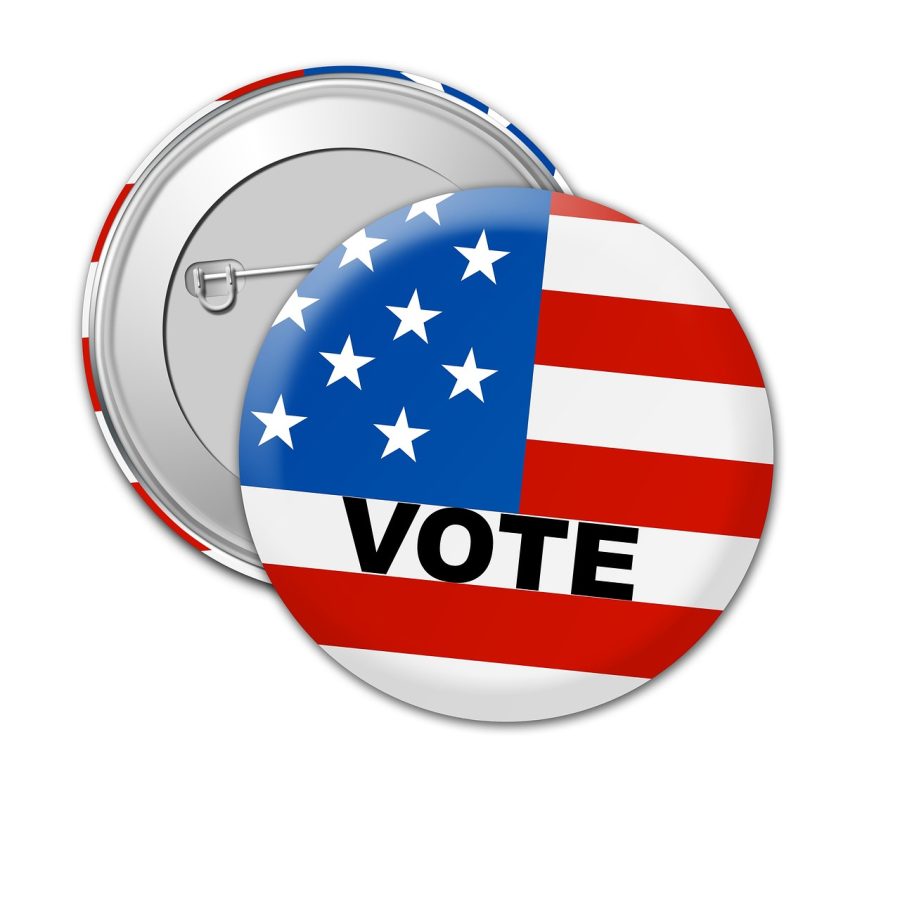Opinion/Counter: Should the Voting Age Be Lowered to 16?

YES by Margot & Nadia
Voting, an essential aspect of our democracy, is currently only accessible to citizens above the age of 18. This policy is outdated and excludes a significant, contributory sector of the United States population. We propose that the minimum voting age be lowered to 16 years old for the following reasons: voting incentivizes teenagers to become politically involved; allowing voting to start earlier sets good, consistent voting habits for years to come; elections can better and more holistically represent the feelings of the entire population.
Over the recent years, the politically involved younger generation has established a substantial presence. Especially during the years in which they are receiving US government and civics education in school, they should be able to experience the democratic process firsthand. House Speaker Nancy Pelosi comments on the importance of young people voting, saying, “I think it’s really important to capture kids when they’re in high school when they’re interested in all of this [civics] when they’re learning about the government to be able to vote.”
Lowering the voting age to 16 can also incentivize people to continue voting later on in life. According to a Yale study, voting is habitual, therefore starting early can create habits that last the person a lifetime. This not only creates a politically and civically engaged youth but also generates momentum from those voting habits as the younger generations age.
The final reason why the voting age should be lowered to 16 is that it could incentivize politicians to be more inclusive with their campaigns and policies. If politicians crafted policies more holistically, elections would be more representative of the whole country. 16 and 17-year-olds are equally affected by governmental policies as adults are. “Young voters can drive, can be tried in court, use public resources, etc… They should be able to have a say in who represents them,” says Vote16USA.
Opposers of this change may argue that 16-year-olds simply do not have the ability to make fully informed voting choices. However, this fails to acknowledge that there are equally uninformed adult voters. A person’s age does not correlate to their ability to consume media around election candidates or ballot questions, especially in the age of increased political content online. A Sage Publishing Journal study “critically [examines] claims that adolescents are neither neurologically nor socially mature enough to vote responsibly and [concludes] that empirical evidence and fairness suggests that 16- and 17-year-olds ought to be awarded the vote.”
Some may also say that 16-year-olds should not be allowed to vote because voter turnout in the 18-25 year age bracket is fairly low. However, as mentioned previously, it is imperative that young people set sustainable voting habits. Starting the process earlier gives teens more time to establish routines so they are ready to consistently represent their political opinions even earlier in their lifetime.
Finally, one may argue that 16-year-olds are not yet able to participate in other government programs like joining the military. While there may be a few examples of this phenomenon, there are certainly many important government programs and systems that 16- and 17-year olds do participate in. They can drive, work, pay taxes, utilize public school systems and transportation, etc. Because of their active, integral role in the US population, they should absolutely be permitted to vote to make up for their lack of representation in select government programs like the military.
Teenagers deserve a voice in democracy, as they are legitimate participants in it. Arguably the most important aspect of a democracy is the election process; voting is such a distinct and impactful system that affects local, state, and national politics. Give 16- and 17-year olds this right of passage of participating in this distinct, crucial aspect of the democracy within which they live. They deserve it.
NO by Quaye & Jonas
We believe that 16 years old is simply too young an age to let people vote. According to a University of Rochester study, biologically, the average brain of a 16-year-old s too underdeveloped to fully grasp the scale and responsibility of an election, especially something on a national scale. At that age, it’s very possible that you don’t have fully formed opinions about how the country should be run, or even know much about how the government and its systems work.
Because they are still minors and dependent on their parents, 16-year-olds aren’t affected by elections in the same way an adult would be. Also, if the limit was lowered to 16, it would be the only facet of our democracy that a minor could really participate in. They wouldn’t be able to join the military or serve on a jury, so why should they be able to take part in the decision-making process for things that they aren’t eligible for?
People may argue that studies that say that building good voting habits early can help make it a routine and that lowering the limit to 16 will help with that. However, the difference is only two years, and people would be able to participate in 1-3 elections in that time if they were lucky. It’s just not worth it to give up that mental development period for increasingly diminishing returns. We mentioned that 16-year-old people are not legally considered adults, but there’s a flip side to that. Many people in this country are tried as adults when in reality they’re younger than 18. According to the National Juvenile Justice Network, that number is about 250,000 people per year in the US. This is a terrible case of injustice and a hole that needs to be closed in our legal system, but it shouldn’t also drag down the voting institutions into making the same mistake.
Someone with an opposing view could say that by lowering the age limit, it could increase turnout. However, voting turnout among the 18-25 age bracket is also already relatively low. Instead of focusing on expanding that bracket, we should focus on getting those people already eligible into the polls.
Finally, one may argue that at the end of the day, 16-year-olds are very much affected by the laws and rulings handed down by our government and so they should have a direct way of affecting those things. But so is every other citizen of the US no matter their age– the real issue is making sure that informed, mature people voice their opinions on the direction of our democracy, and not people who aren’t up to the task on any level.



























